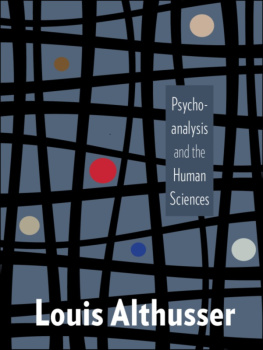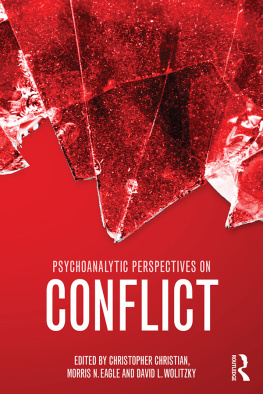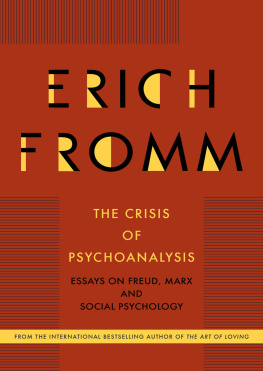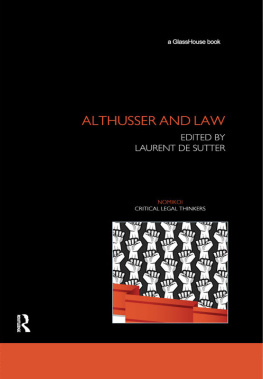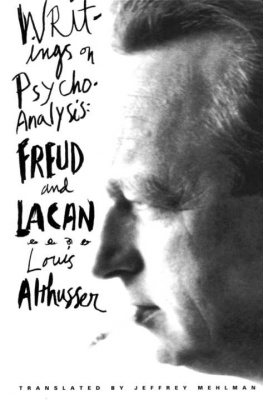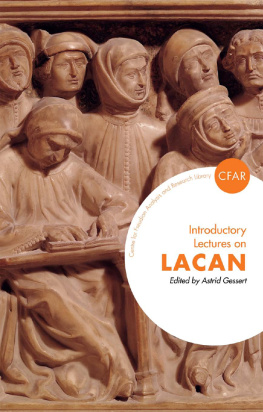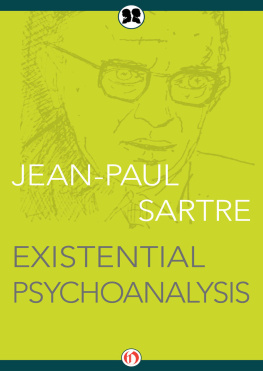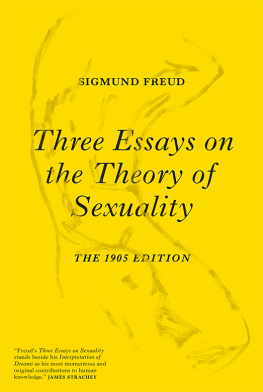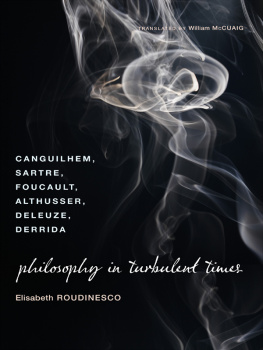Table of Contents
Psychoanalysis and
the Human Sciences
EUROPEAN PERSPECTIVES:
A SERIES IN SOCIAL THOUGHT
AND CULTURAL CRITICISM
EUROPEAN PERSPECTIVES
A SERIES IN SOCIAL THOUGHT AND CULTURAL CRITICISM
Lawrence D. Kritzman, Editor
European Perspectives presents outstanding books by leading European thinkers. With both classic and contemporary works, the series aims to shape the major intellectual controversies of our day and to facilitate the tasks of historical understanding.
For a complete list of books in the series, see .
EUROPEAN PERSPECTIVES
A SERIES IN SOCIAL THOUGHT AND CULTURAL CRITICISM
Lawrence D. Kritzman, Editor
Gilles Deleuze, Nietzsche and Philosophy
David Carroll, The States ofTheory
Gilles Deleuze, The Logic of Sense
Julia Kristeva, Strangers to Ourselves
Alain Finkielkraut, Remembering in Vain: The Klaus Barbie Trial and Crimes Against Humanity
Pierre Vidal-Naquet, Assassins of Memory: Essays on the Denial of the Holocaust
Julia Kristeva, Nations Without Nationalism
Theodor W. Adorno, Notes to Literature, vols. 1 and 2
Richard Wolin, ed., The Heidegger Controversy
Hugo Ball, Critique of the German Intelligentsia
Pierre Bourdieu, The Field of Cultural Production
Karl Heinz Bohrer, Suddenness: On the Moment of Aesthetic Appearance
Gilles Deleuze, Difference and Repetition
Gilles Deleuze and Flix Guattari, What Is Philosophy?
Alain Finkielkraut, The Defeat of the Mind
Jacques LeGoff, History and Memory
Antonio Gramsci, Prison Notebooks, vols. 1, 2, and 3
Ross Mitchell Guberman, Julia Kristeva Interviews
Julia Kristeva, Time and Sense: Proust and the Experience of Literature
Elisabeth Badinter, XY: On Masculine Identity
Gilles Deleuze, Negotiations, 19721990
Julia Kristeva, New Maladies of the Soul
Norbert Elias, The Germans
Elisabeth Roudinesco, Jacques Lacan: His Life and Work
Paul Ricoeur, Critique and Conviction: Conversations with Franois Azouvi and Marc de Launay
Pierre Vidal-Naquet, The Jews: History, Memory, and the Present
Karl Lwith, Martin Heidegger and European Nihilism
Pierre Nora, Realms of Memory: The Construction of the French Past
Vol. 1: Conflicts and Divisions
Vol. 2: Traditions
Vol. 3: Symbols
Alain Corbin, Village Bells: Sound and Meaning in the Nineteenth-Century French Countryside
Louis Althusser, Writings on Psychoanalysis: Freud and Lacan
Claudine Fabre-Vassas, The Singular Beast: Jews, Christians, and the Pig
Tahar Ben Jelloun, French Hospitality: Racism and North African Immigrants
Alain Finkielkraut, In the Name of Humanity: Reflections on the Twentieth Century
Emmanuel Levinas, Entre Nous: Essays on Thinking-of-the-Other
Zygmunt Bauman, Globalization: The Human Consequences
Emmanuel Levinas, Alterity and Transcendence
Alain Corbin, The Life of an Unknown: The Rediscovered World of a Clog Maker in Nineteenth-Century France
Carlo Ginzburg, Wooden Eyes: Nine Reflections on Distance
Sylviane Agacinski, Parity of the Sexes
Michel Pastoureau, The Devils Cloth: A History of Stripes and Striped Fabric
Alain Cabantous, Blasphemy: Impious Speech in the West from the Seventeenth to the Nineteenth Century
Julia Kristeva, The Sense and Non-Sense of Revolt: The Powers and Limits of Psychoanalysis
Kelly Oliver, The Portable Kristeva
Gilles Deleuze, Dialogues II
Catherine Clment and Julia Kristeva, The Feminine and the Sacred
Sylviane Agacinski, Time Passing: Modernity and Nostalgia
Luce Irigaray, Between East and West: From Singularity to Community
Julia Kristeva, Hannah Arendt
Julia Kristeva, Intimate Revolt: The Powers and Limits of Psychoanalysis, vol. 2
Elisabeth Roudinesco, Why Psychoanalysis?
Rgis Debray, Transmitting Culture
Steve Redhead, ed., The Paul Virilio Reader
Claudia Benthien, Skin: On the Cultural Border Between Self and the World
Julia Kristeva, Melanie Klein
Roland Barthes, The Neutral: Lecture Course at the Collge de France (19771978)
Hlne Cixous, Portrait of Jacques Derrida as a Young Jewish Saint
Theodor W. Adorno, Critical Models: Interventions and Catchwords
Julia Kristeva, Colette
Gianni Vattimo, Dialogue with Nietzsche
Emmanuel Todd, After the Empire: The Breakdown of the American Order
Gianni Vattimo, Nihilism and Emancipation: Ethics, Politics, and Law
Hlne Cixous, Dream I Tell You
Steve Redhead, The Jean Baudrillard Reader
Jean Starobinski, Enchantment: The Seductress in Opera
Jacques Derrida, Geneses, Genealogies, Genres, and Genius: The Secrets of the Archive
Hlne Cixous, White Ink: Interviews on Sex, Text, and Politics
Marta Segarra, ed., The Portable Cixous
Franois Dosse, Gilles Deleuze and Flix Guattari: Intersecting Lives
Julia Kristeva, This Incredible Need to Believe
Franois Noudelmann, The Philosophers Touch: Sartre, Nietzsche, and Barthes at the Piano
Antoine de Baecque, Camera Historica: The Century in Cinema
Julia Kristeva, Hatred and Forgiveness
Roland Barthes, How to Live Together: Novelistic Simulations of Some Everyday Spaces
Jean-Louis Flandrin and Massimo Montanari, Food: A Culinary History
Georges Vigarello, The Metamorphoses of Fat: A History of Obesity
Julia Kristeva, The Severed Heads: Capital Visions
Eelco Runia, Moved by the Past: Discontinuity and Historical Mutation
Franois Hartog, Regimes of Historicity: Presentism and Experiences of Time
Jacques Le Goff, Must We Divide History Into Periods?
Claude Lvi-Strauss, We Are All Cannibals: And Other Essays
Marc Aug, Everyone Dies Young: Time Without Age
Psychoanalysis and the Human Sciences
Louis Althusser
Translated by Steven Rendall
COLUMBIA UNIVERSITY PRESS | NEW YORK
Columbia University Press
Publishers Since 1893
New York Chichester, West Sussex
cup.columbia.edu
Copyright 1996 Librairie Gnrale Franaise/IMEC
Published by special arrangement with La Librairie Gnrale Franaise in conjunction with their duly appointed agent, 2 Seas Literary Agency. English translation copyright 2016 Columbia University Press

